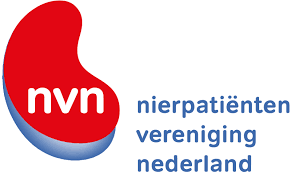Article No 416
2 February 2021
Vergoeding eculizumab verlengd tot eind 2025
In March 2016 the Appraisal Committee (ACP) of the National Health Care Institute in the Netherlands (Zorginstituut Nederland, ZINL) took the decision to advise the Minister of Health in the Netherlands to no longer fund the drug eculizumab from the basic insurance package for the treatment of PNH patients.
Then it turned its attention to aHUS patients being treated with the same drug and who had access to eculizumab at their hospitals. Over a period of discussions, clinicians and aHUS patients made the case that the cost effectiveness of eculizumab was not what the appraisal committee believed it was
The outcome was clinicians and patients would demonstrate that the real cost of eculizumab per aHUS patients was much less and not what Alexion’s prescribed doses claimed it to be. They had until December 2020 to provide evidence.
The project called CUREiHUS was launched. CUREiHUS has been featured on aHUS Global Action website several times in recent years. The alliance even attended a conference at which it was discussed. Its aim was to show costs per patient can be lower if less medication is needed but can still be clinically effective.
Doctors and patient associations, including the aHUS diagnosis group of the NVN, participated in the study. The first results have been successful: instead of taking the drug for life, patients can take lowers doses and safely stop taking eculizumab without the aHUS returning.
Last month The Ministry of Health, Welfare and Sport in The Netherlands announced that it will extend its agreements with pharmaceutical company Alexion and that eculizumab will remain reimbursed for aHUS until December 2025.
The Minister praised the collaboration between doctors and patients, which led to a reduction in costs and thus ensures that the medicine remains available.
The results are of no surprise to anyone who has been been following several eculizumab withdrawal and tapering studies around the world over the past eight years. This result also demonstates what patients and patients organsisation can do to influence health policy decision makers in theif countries.
There are several countries with health policy decision makers under the same misaprehension as the Appraisal Committee (ACP) of the National Health Care Institute in the Netherlands (Zorginstituut Nederland, ZINL were in 2016.
If a viewer of this article is a patient in such a country and cannot access treatment , what has happened in The Netherlands and in other countries should be an encouragement to seek change in theirs.
It is not known what has happened to PNH patients in Netherlands. Their dilemma is that whereas aHUS patients have seen lowering of eculizumab doses over the years to reduce costs yet the drug remains clinically effective , prescribed eculizumab doses for PNH patients have become not as effective as they once were , and dosing needs to be increased thereby raising costs. Ravulizumab may be an answer for them.
………………………………
This is how the Dutch Kidney patient organsiation announced the news.

Vergoeding eculizumab verlengd tot eind 2025
Goed nieuws voor mensen met de nierziekte aHUS: Het ministerie van VWS heeft laten weten dat het de afspraken met farmaceut Alexion verlengt en dat eculizumab tot en met december 2025 vergoed blijft.
Eculizumab (merknaam Soliris) is het enige medicijn dat helpt tegen aHUS. Een nadeel van eculizumab is dat het extreem duur is. In eerste instantie werd het dan ook niet opgenomen in het basispakket van de zorgverzekering.
CUREiHUS
Het Radboudumc is eind 2016 een onderzoek gestart naar de mogelijkheid om het middel minder intensief te gebruiken dan de fabrikant in eerste instantie voorschreef: CUREiHUS. De kosten per patiënt zijn lager als hij minder medicijn gebruikt, maar de vraag was of het middel dan nog net zo effectief is. Artsen en patiëntenverenigingen, waaronder de diagnosegroep aHUS van de NVN, nemen deel aan dit onderzoek.
De eerste resultaten zijn succesvol: in plaats van het medicijn levenslang te gebruiken, kunnen patiënten veilig stoppen met eculizumab, zonder dat de aHUS terugkomt.
In het basispakket
In 2018 besloot de minister van VWS dat eculizumab gedurende de studie in het basispakket werd opgenomen. In eerste instantie was dat tot eind 2020, dit is nu verlengd tot eind 2025. De minister prijst de samenwerking tussen artsen en patiënten die leidt tot de beperking van de kosten en daarmee zorgt dat het medicijn beschikbaar blijft.
Op basis van de uiteindelijke studie-uitkomsten zal Zorginstituut Nederland (ZiN) de minister een definitief advies voor opname in het basispakket voorleggen
NVN website can be accessed HERE.

